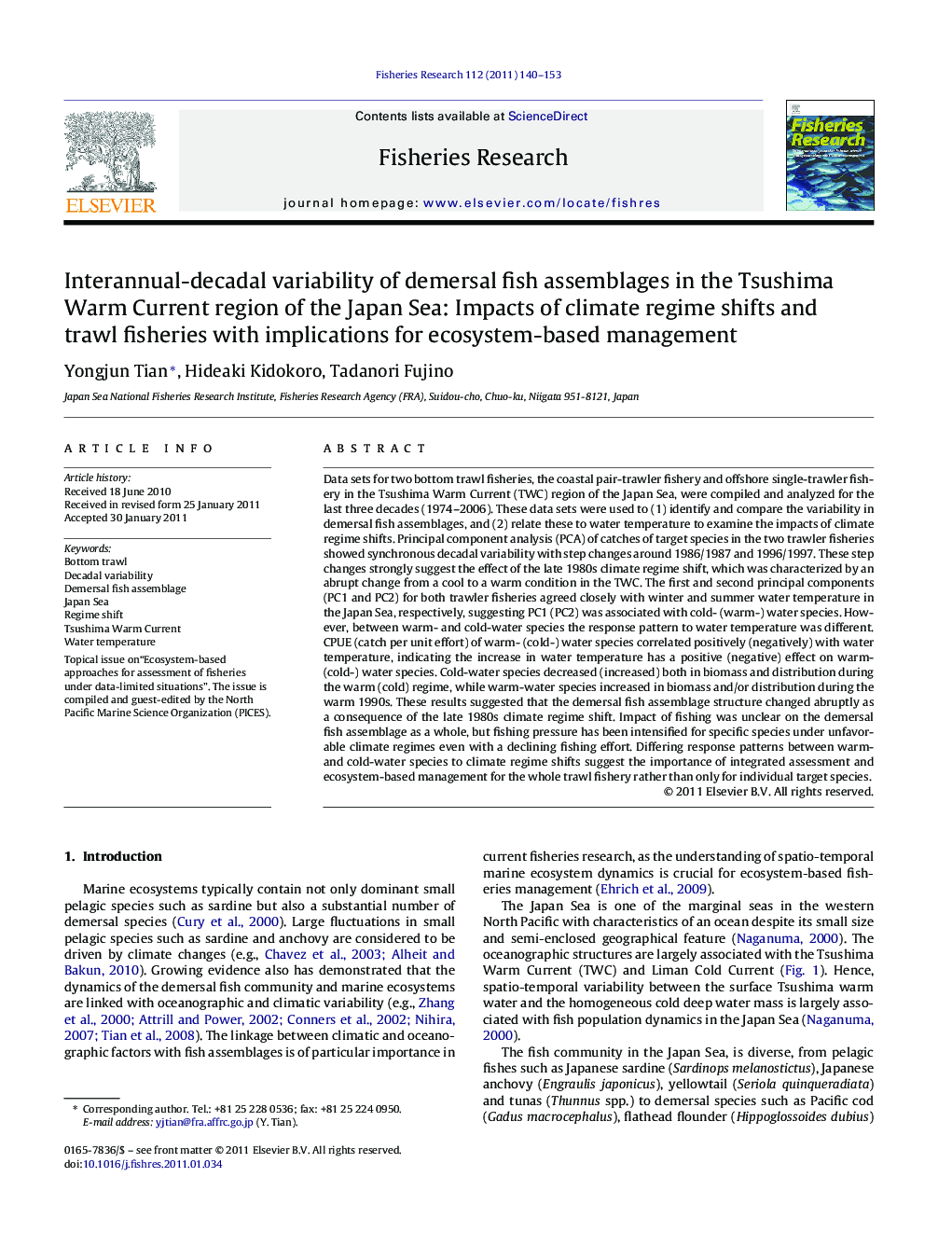| کد مقاله | کد نشریه | سال انتشار | مقاله انگلیسی | نسخه تمام متن |
|---|---|---|---|---|
| 4543533 | 1327152 | 2011 | 14 صفحه PDF | دانلود رایگان |

Data sets for two bottom trawl fisheries, the coastal pair-trawler fishery and offshore single-trawler fishery in the Tsushima Warm Current (TWC) region of the Japan Sea, were compiled and analyzed for the last three decades (1974–2006). These data sets were used to (1) identify and compare the variability in demersal fish assemblages, and (2) relate these to water temperature to examine the impacts of climate regime shifts. Principal component analysis (PCA) of catches of target species in the two trawler fisheries showed synchronous decadal variability with step changes around 1986/1987 and 1996/1997. These step changes strongly suggest the effect of the late 1980s climate regime shift, which was characterized by an abrupt change from a cool to a warm condition in the TWC. The first and second principal components (PC1 and PC2) for both trawler fisheries agreed closely with winter and summer water temperature in the Japan Sea, respectively, suggesting PC1 (PC2) was associated with cold- (warm-) water species. However, between warm- and cold-water species the response pattern to water temperature was different. CPUE (catch per unit effort) of warm- (cold-) water species correlated positively (negatively) with water temperature, indicating the increase in water temperature has a positive (negative) effect on warm- (cold-) water species. Cold-water species decreased (increased) both in biomass and distribution during the warm (cold) regime, while warm-water species increased in biomass and/or distribution during the warm 1990s. These results suggested that the demersal fish assemblage structure changed abruptly as a consequence of the late 1980s climate regime shift. Impact of fishing was unclear on the demersal fish assemblage as a whole, but fishing pressure has been intensified for specific species under unfavorable climate regimes even with a declining fishing effort. Differing response patterns between warm- and cold-water species to climate regime shifts suggest the importance of integrated assessment and ecosystem-based management for the whole trawl fishery rather than only for individual target species.
Research highlights
► We analyzed interannual-decadal variability of demersal fish assemblages in the Japan Sea using long-term trawl fisheries data.
► Decadal variability in the dermersal fish assemblages is forced by climate regime shifts.
► Response patterns of demersal fishes to water temperature are different between warm and cold water species.
► Impact of fishing was unclear on the demersal fish assemblage as a whole, but fishing pressure has been intensified for specific species under unfavorable climate regimes even with a declining fishing effort.
Journal: Fisheries Research - Volume 112, Issue 3, December 2011, Pages 140–153